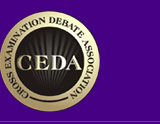Abstract
Allyship has been a common topic of discussion among social justice and social work advocates (Edwards, 2006; Ostrove & Brown, 2017; Gibson, 2014), communication and rhetorical studies scholars (DeTurk, 2011; Lawless, 2016), and debaters and debate coaches. Yet, we know little about what an ally is or does. In this article we critique allyship as a deeply problematic way of expressing oneself. We do so for several reasons: allyship is about status and box-checking more than assistance and support, it allows backsliding and defensive responses instead of reflection and critical engagement, and it focuses more on the person claiming to be an ally than the people with whom this person claims to ally. As such, we argue allying is a better term because it emphasizes the constant action, indeed the praxis necessary, to truly assist and support minority populations, specifically black populations, given systemic anti-black racism and an increasingly overtly racist public sphere. To honor the Louisville Project, debate activity participants must practice allying and not allyship.
Recommended Citation
Christie, Lauren and Sciullo, Nick J.
(2023)
"In Honor of the Louisville Project: Allying Instead of Allyship to Support Minority Debaters,"
Contemporary Argumentation and Debate: Vol. 38, Article 9.
Available at:
https://commons.lib.jmu.edu/cad/vol38/iss1/9



